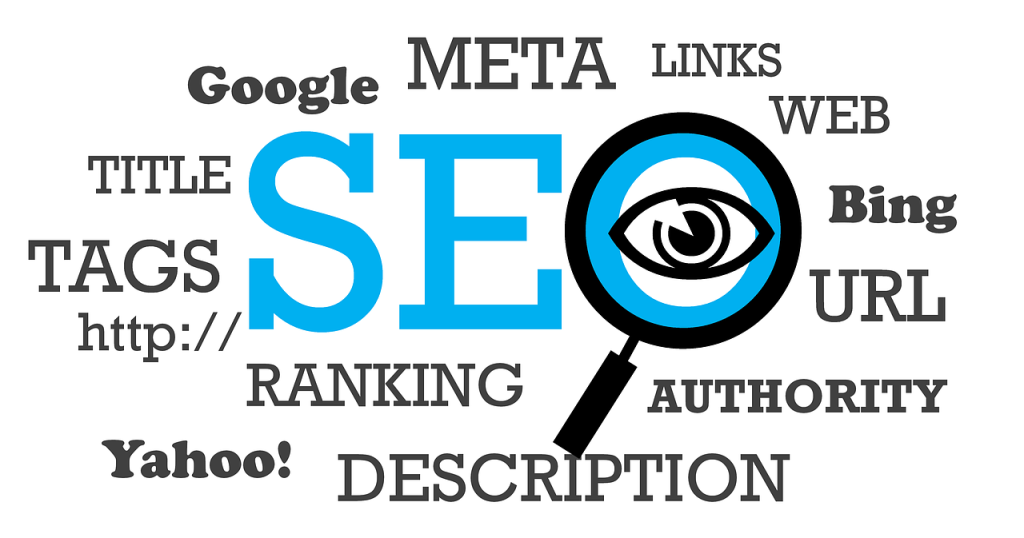SEO Tips for Beginners

Are you a beginner looking to improve your website’s ranking on search engines? Look no further! In this article, we will share expert SEO tips that can help boost your website’s visibility and increase organic traffic.
Understanding the Basics of SEO
Search Engine Optimization (SEO) is the process of optimizing your website to improve its visibility on search engine results pages (SERPs). It involves various techniques and strategies aimed at making your website more search engine and user-friendly.
One of the first steps in SEO is understanding how search engines work. Search engines use complex algorithms to determine the relevance and quality of websites. By understanding these algorithms, you can make informed decisions on how to optimize your website for better rankings.
Another important aspect of SEO is knowing the difference between organic and paid search results. Organic search results are the listings that appear naturally on the SERPs, while paid search results are advertisements that appear at the top or bottom of the page. While paid ads can be effective, focusing on organic search results is crucial for long-term success.
To improve your website’s ranking, you need to optimize various elements such as keywords, content, meta tags, and backlinks. In the following sections, we will explore these elements in more detail and provide expert tips on how to optimize them effectively.
Conducting Keyword Research
Keyword research is the foundation of any successful SEO strategy. By identifying and targeting the right keywords, you can attract the right audience to your website. Start by brainstorming relevant keywords that are related to your business or industry. Then, use keyword research tools like Google Keyword Planner or SEMrush to find additional keywords and determine their search volume and competition.
When selecting keywords, consider their relevance, search volume, and competition. Focus on long-tail keywords, which are more specific and have lower competition. These keywords have a higher chance of ranking well and attracting targeted traffic to your website.
Once you have identified your target keywords, incorporate them strategically into your website content. Use them in your page titles, headings, meta tags, and throughout your content. However, be careful not to overstuff your content with keywords, as this can negatively impact your rankings. Aim for a natural and seamless integration of keywords into your content.
On-Page Optimization Techniques
On-page optimization refers to the techniques used to optimize individual web pages to improve their visibility on search engine results pages. This includes optimizing elements such as title tags, meta descriptions, URLs, headers, and images.
Start by optimizing your title tags, which are the HTML elements that define the title of a web page. These tags appear as the clickable headline on the SERPs and play a crucial role in attracting visitors to your website. Make sure your title tags are relevant, descriptive, and include your target keywords.
Next, optimize your meta descriptions, which are the short snippets of text that appear below the title tags on the SERPs. Although meta descriptions don’t directly impact rankings, they can significantly influence click-through rates. Craft compelling and concise meta descriptions that entice users to click on your website.
In addition to title tags and meta descriptions, optimize your URLs, headers, and images. Use descriptive URLs that include your target keywords, and organize your content using header tags (H1, H2, H3, etc.). When using images, optimize them by adding alt text that describes the image and includes relevant keywords.
Creating High-Quality and Engaging Content
Creating high-quality, informative content is key to attracting and engaging visitors. Search engines prioritize websites that provide valuable and relevant content to users. Therefore, focus on creating content that answers users’ questions, provides solutions to their problems, or educates them about a specific topic.
When creating content, consider your target audience and their needs. Conduct thorough research to gather accurate and up-to-date information. Structure your content in a logical and easy-to-read format, using headings, subheadings, bullet points, and paragraphs to enhance readability.
Incorporate your target keywords naturally into your content. However, avoid keyword stuffing and prioritize the user experience. Write for your audience, not search engines. Aim to provide value and engage your readers with well-written, compelling content.
Additionally, consider using multimedia elements such as images, videos, and infographics to enhance your content. These elements can make your content more visually appealing and engaging, increasing the chances of attracting and retaining visitors.
Optimizing Meta Tags and Meta Descriptions
Meta tags and meta descriptions are crucial elements of on-page optimization. They provide information to search engines about the content of your web pages and help improve your website’s visibility on the SERPs.
Meta tags are HTML elements that provide metadata about a web page. The most important meta tags for SEO are the title tag and meta description. As mentioned earlier, the title tag appears as the clickable headline on the SERPs, while the meta description appears below it.
Optimize your title tags by including your target keywords and making them descriptive and compelling. Keep them within the recommended character limit to ensure they are fully displayed on the SERPs.
Craft unique and persuasive meta descriptions that accurately summarize the content of your web pages. Incorporate relevant keywords and make them enticing to users, encouraging them to click on your website.
Building High-Quality Backlinks
Backlinks are links from other websites that point to your website. They are an important ranking factor and can significantly impact your website’s visibility on search engines. However, not all backlinks are created equal. Quality is more important than quantity when it comes to backlinks.
Focus on building high-quality backlinks from reputable and relevant websites. One effective way to acquire backlinks is by creating valuable and shareable content that naturally attracts links from other websites. This could include guest blogging, creating infographics, or publishing original research.
Additionally, reach out to other website owners or bloggers in your industry and offer to write guest posts or contribute to their content. This can help you establish relationships and secure valuable backlinks.
Remember, when building backlinks, focus on quality rather than quantity. A few high-quality backlinks from authoritative websites can have a greater impact on your rankings than numerous low-quality backlinks.
Optimizing Website Speed and Mobile-Friendliness
Website speed and mobile-friendliness are two crucial factors for better search engine rankings. Visitors tend to abandon websites that take too long to load or are not optimized for mobile devices. Therefore, it is essential to optimize your website for speed and ensure it is mobile-friendly.
To improve your website’s loading speed, optimize your images, use caching techniques, and minimize the use of unnecessary scripts and plugins. Compress your images without compromising their quality, and enable browser caching to reduce loading times for returning visitors.
Additionally, ensure that your website is responsive and mobile-friendly. With the increasing use of smartphones and tablets, having a mobile-friendly website is essential for providing a seamless user experience. Optimize your website’s design and layout for different screen sizes and ensure that it loads quickly on mobile devices.
Utilizing Social Media for SEO
Social media can play a significant role in improving your website’s visibility and driving organic traffic. By leveraging social media platforms, you can increase brand awareness, engage with your audience, and attract more visitors to your website.
Start by creating profiles on relevant social media platforms, such as Facebook, Twitter, Instagram, and LinkedIn. Customize your profiles to reflect your brand and include links to your website. Regularly post engaging and shareable content that encourages interaction and drives traffic to your website.
Utilize social media advertising to reach a wider audience and promote your content. Paid social media ads can help increase brand visibility and attract targeted traffic to your website. Target specific demographics, interests, and locations to maximize the effectiveness of your social media campaigns.
Additionally, incorporate social sharing buttons on your website to make it easy for visitors to share your content on their social media platforms. This can help increase the reach of your content and attract more organic traffic.
Monitoring and Analyzing Website Performance
Monitoring and analyzing your website’s performance is crucial for improving your SEO strategy. Regularly track key metrics such as organic traffic, bounce rate, conversion rate, and keyword rankings to gain insights into your website’s performance.
Utilize analytics tools like Google Analytics or SEMrush to track and analyze your website’s performance. These tools provide valuable data on user behavior, traffic sources, and keywords that drive organic traffic.
By analyzing this data, you can identify areas for improvement, understand user preferences, and make data-driven decisions to optimize your SEO strategy. Identify high-performing pages and replicate their success on other pages. Identify underperforming pages and optimize them to improve their rankings and attract more traffic.
Staying Updated with SEO Trends and Best Practices
SEO is an ever-evolving field, and it is crucial to stay updated with the latest trends and best practices. Search engine algorithms are constantly changing, and what works today may not work tomorrow.
Stay informed by following reputable SEO blogs, attending webinars, and participating in industry forums. Join SEO communities and engage with experts to learn from their experiences and stay up to date with the latest trends.
Regularly test and experiment with different SEO strategies to see what works best for your website. Keep an eye on your competitors and learn from their successes and failures. By staying updated and adapting to the changing SEO landscape, you can ensure that your website remains competitive and continues to attract organic traffic.
In conclusion, improving your website’s ranking on search engines requires a combination of technical optimization, high-quality content creation, and strategic promotion. By following these expert SEO tips, you will be well on your way to improving your website’s ranking and attracting more organic traffic. Remember, SEO is a long-term process, so be patient and persistent in your efforts. Good luck!
